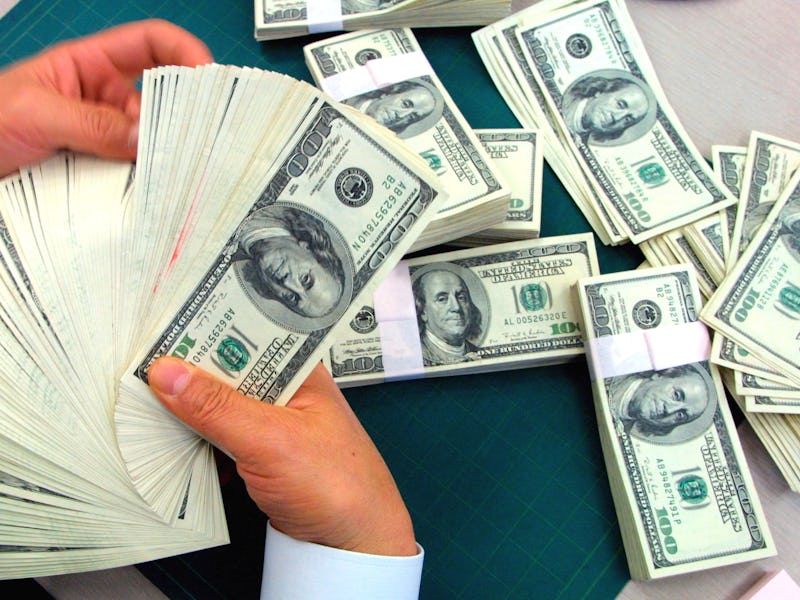The Sweet Spot: Why Some Bars Stay Cash-Only
Let's just say it: They're probably not paying all of their taxes.

There are few things more frustrating and confounding than a place that doesn’t accept a credit or debit card. In a world of Square and Apple Pay, cash-only businesses feel straight-up archaic. So, why do they do it? Let’s take a look at a big slice of that category — bars that accept cash and cash alone — to find out.
2 percent milked
Just say, for argument’s sake, credit card transaction fees average around 2 percent. (They can be much more than that. Also, Visa and its demon babies often tack on monthly charges as well as flat fees per transaction: sometimes 20 to 30 cents.)
So, your burgeoning bar pulls in $20,000 a month; 2 percent of that is $400. Doesn’t sound like much? That’s $4,800 a year. And that’s not counting the flat transaction fees.
If your bar specializes in small rounds of beer or cheap cocktails, your register is gonna be lighting up. Each of those transactions with a card brings the proverbial hammer down.
Busy, busy
And if you’re the owner of the White Horse Tavern or McSorley’s Ale House, you have enough traffic not to worry about dissuading purchases. This is the sweet spot: A bustling joint whose business model centers on a ton of transactions for small amounts.
Death and — if we feel like it — taxes
It’s widely assumed that many cash-only businesses — bars, restaurants, bodegas et al. — don’t report all of their finances to the IRS. And some even benefit from ATMs they set up inside. It might be what some call “dirty,” but it definitely keeps more bling in the owner’s pocket, and in many cases, probably keeps the business open at all. Last year, for instance, the IRS estimated that $270 billion was lost to unreported income. The biggest culprit? Small business owners, who the IRS estimates underreport earnings by a whopping 43 percent.
So let’s play devil’s advocate, here, and wonder what credit cards could do for these places.
- Encourage customers, especially drunk ones, to spend more on open tabs.
- Discourage bartenders from not ringing in drinks and pocketing the cash.
- Convenience, goddammit! You know you’ve walked away from cash-only joints before.
You’d have to assume that, for most places, these factors alone would recoup any fees lost to the credit card companies. So, here’s the deal: Some bars — and restaurants and bodegas and sweater-knitting companies — believe in a model that relies on small transactions in mass amounts. Others are shirking the system, not reporting income to the feds. The ones making the most on the cash-only system are combining the two.
A fun little nugget: Most cash-only bars I called in New York City didn’t want talk about this piece. One bar’s manager told me, “We’re a cash-only business and want to stay that way,” as if I was threatening that existence from continuing. It’s kind of odd since they’re easily identifiable on Yelp and by, ya know, just walking in for a drink.
Hell, I hate the credit card companies as much as they do — I have a daily reminder when I log into my bank account. You’re as likely to see a Visa sticker on the back of my car as you are to see one on the doors of the cash-only businesses still lingering around today.
Just one subtle difference: I’m planning on still paying my taxes.